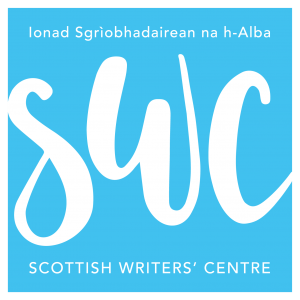![]()
A terrific event on Tuesday night; highly informative, incredibly stimulating, and with a strong turnout – just how we like it. The chairs nearly ran out! As opposed to the Chair nearly running out, which he might on a bad day! So thank you, one and all.
Rune Graulund, Danish born lecturer in Literature at Strathclyde University, invited three up-and-coming Danish writers – Lene Asp, Martin Glaz Serup, and René Jean Jensen – to the Glasgow/Copenhagen Creative Writers Exchange at the SWC (for which we should acknowledge the financial support of the Danish government).
Martin began with his Poem About Happiness, perfectly capturing the shared sensibility between the three writers (despite being unaffiliated with any distinct literary movement, nor being in anyway representative of a ‘mainstream’). Martin’s poetry combined philosophical insights (“properly used, life is long enough”) with everyday observations, in a style of almost random juxtaposition (accumulating over time, in the mind, to powerful effect).
Lene’s writing was more disturbing in tone – provocative at times – producing gifts of phrase such as “what is a woman’s equivalent of a fishing trip? None, she has none”, and “love doesn’t die when the possibility of love dies”. Other expressions remain firmly lodged in memory, like “a ruin grows downwards” and “the resource of the smile”.
René’s poetry continued with a certain surrealism, but combined with contemporary elements of the digital age. Thus, “the sunset was a re-run of an old one I thought had been deleted”, “the essential thing about privacy is that it must look good in public”, and “the second time around the distance looked uninterested in itself”.
The discussion afterwards yielded penetrating insights – a new adjective applicable to poetry (“Rilking”) illustrating the strong influence of German literature and culture on the country’s northerly neighbours; the difficulties of translation, chiefly the need to express only the best of three or four meanings which a particular sentence might hold; the revelation of hearing your work anew when filtered through a different language; the feeling of “working blind” unless you know every single connotation of the English words you choose.
Primary influences on all three writers were Rilke, William Carlos Williams, Charles Bernstein, Kenneth Goldsmith, and Robert Walser. Affecting quotes emerged – “writing is the best technology we have for trying to imagine we are someone else”. Lastly, the idea of Denmark as a fairly equal society was pressed, with the phrase “middle-class” still apparently prevalent – but not as a note of pride; rather, as one of self-doubt (suggesting a lack of authenticity – this in turn suggesting a touch of decadence).
We look forward to worrying about that, once we’ve built an egalitarian Scotland!



